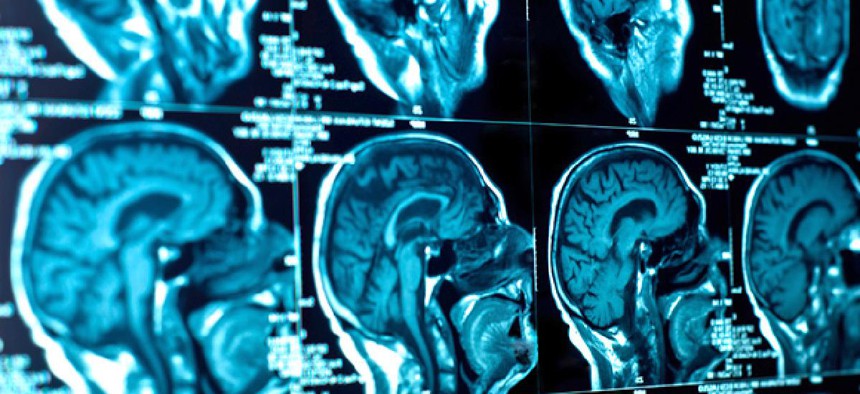Why Some Scientists Aren't Happy About Obama's $3 Billion Brain Research Plan

Oliver Sved/Shutterstock.com
Researchers say the project lacks clear goals and gobbles up money that could've gone to better studies.
Funding-strapped researchers should be rejoicing at President Obama's promise to put $3 billion towards mapping the human brain, right? Not according to scientists who say the project lacks clear goals and gobbles up money that could've gone to a lot more smaller studies.
The front page of Monday's New York Times carried a story by John Markoff on a research effort called the Brain Activity Map, a huge neuroscience undertaking that the Obama administration plans to invest $300 million in annually for the next decade. A joint project between federal agencies, private research foundations, and leading neuroscientists, the envisioned project would create a definitive map of interaction between the human brain's approximately 100 billion neurons. Advocates say the findings could improve our understanding of diseases like Parkinson's and Alzheimer's, lead to breakthroughs in artificial intelligence, and boost the economy. The President is expected to announce the Office of Science and Technology Policy initiative as early as March, making good on a segment from his State of the Unionthat teased a brain research program on the scale of the Human Genome Project:
Every dollar we invested to map the human genome returned $140 to our economy — every dollar. Today our scientists are mapping the human brain to unlock the answers to Alzheimer’s ... Now is not the time to gut these job-creating investments in science and innovation.
Harvard biologist George M. Church — who participated in the Human Genome Project and has been tapped to work on the Brain Activity Map — thinks this project could be even more profitable, saying it "will probably get a lot more bang for the buck."
With sequestration hovering over research like a blunt guillotine, you might expect scientists to be on board with Church and Obama, supporting such huge allocations. And you'd be right to think that plentyof them are cheering the windfall. But a cadre of researchers remain skeptical about this second "Decade of the Brain," expressing concern about the feasibility of the Brain Activity Map's goals and wondering whether this is the best use of federal resources.
Read more at The Atlantic Wire.
(Image via Oliver Sved/Shutterstock.com)





